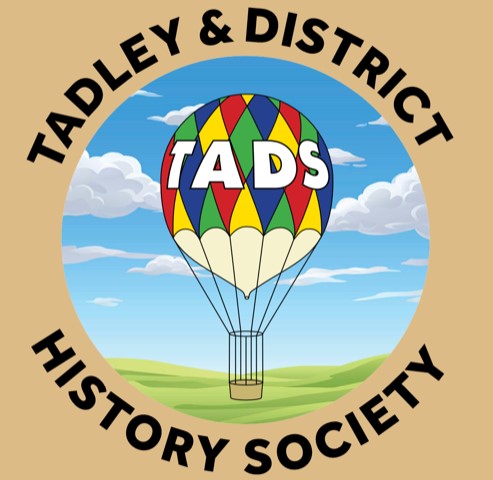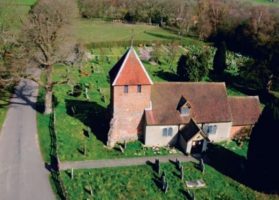amercement: fine payable to a court. [6]
annual recognizance : payment made by an unfree male tenant who wished to live outside the manor but who did not wish, or possess the resources, to buy his full freedom. Also paid by strangers for permission to live within the manor. [1]
assart : piece of heath or woodland converted into arable by grubbing up the trees and brushwood. [1]
assize ordinance : regulating the quality and price of ale bailiff official overseeing the administration of a geographically compact group of manors [1]
aver (also affer): adult work-horse, usually used for plowing. [6]
boonwork : extra work for the lord (e.g., at harvest time) required of servile tenants (serfs), including seasonal obligation of unfree tenants to work for a few days, in addition to their week-work primarily to assist the ploughing of the demesne or the reading of the com, for which they were usually rewarded, either in cash or with food. demesne: land farmed or managed directly by the lord himself. [1]
conygarth: rabbit yard (see Warren). [6]
corn grain: (not maize or sweet corn, a New World food that did not exist in medieval Europe). [6]
cultura: strip of plowland. [6]
curtilage: courtyard. [6]
customary work: ordinary work for the lord required of servile tenants (serfs). [6]
combe : a short valley or hollow on a hillside or coastline, especially in southern England. In geology: a dry valley in a limestone or chalk escarpment. [4]
demesne: Manorial land retained for the use of the lord of the manor rather than rented out to tenants. [6]
dredge: mixture of oats and spring barley, often malted to make ale. [6]
extent: manorial survey listing holdings and tenants and the rents and labor services due from them; also known as a terrier. [6]
entry fine : paid to the lord by the incoming tenant of a piece of villein land on the death or withdrawal of the outgoing tenant. [1]
escheat land : property forfeited to the lord. which reverted to the lord on the death of a tenant without an heir. ferling a quarter of a virgate. forestall: to buy up goods before they reach the market in order to profit by creating a monopoly. [1]
feudal fee farm grants : The ban on subinfeudation in the fee simple did not apply to land granted after Quia Emptores to supporters of the Crown. These new estates (many of which were created after the 17th-century plantations) were thus regularly divided into sub-tenures as fee farm grants.
fee-farm grants : is a hybrid type of land ownership typical in cities and towns. The word fee is derived from fief, meaning a feudal landholding, and a fee farm grant is similar to a fee simple in the sense that it gives the grantee the right to hold a freehold estate, the only difference being the payment of an annual rent (farm being an archaic word for rent) and covenants, thus putting both parties in a landlord-tenant relationship. A city such as Oxford could receive a grant of fee-farm (the grant offee-farm is often spoken of as if it ‘made’ a borough). Any perpetually renewable leases for life were converted into fee farm grants after the enactment of the Renewable Leasehold Conversion Act 1849. This act also allowed any existing lessees for lives to convert their holding into a fee farm grant.[1]
fee simple : is an estate in land, a form of freehold ownership. It is a way that real estate and land may be owned in common-law countries, and is the highest possible ownership interest that can be held in real property.[1]
glebe, or glebe land : was that farmed or leased out by a parish priest, having been bequeathed to him bit by bit by local worthies. In some parishes this amounted to a substantial holding, enough to create a Glebe Farm.[2]
glebe terrier : is a description of the lands held by the parish incumbent, but has come to include all of the church’s possession’s outside of the church buildings. This might comprise land, buildings, stocks, implements, tithes and how they were to be paid, and fees due, and might be described more prosaically on a record as Survey of Land and Buildings.[2]
heriot : render of the best live beast or chattel of a deceased tenant due by legal custom to the lord of whom he held. [1]
hundred penny : annual due payable by all males over the age of twelve on the Taunton manors. [1]
legume : plant, such as beans, peas or vetch, which enhanced the yield of cereal crops by fixing nitrogen in the soil. [1]
livery : provision of food granted to manorial servants in return for service. mark: unit of currency, equivalent to 13s. 4d. or two thirds of a pound. [1]
longcut : A path between two points that is not the shortest or quickest route[4].
marl : a kind of soil consisting principally of clay mixed with carbonate of lime, used as a fertilizer. [1]
marriage fine : paid when an unfree female tenant of the lord was married. [1]
mead : an archaic or poetic word for meadow [5]
messuage : portion of land occupied by a dwelling house. [1]
multure : corn retained by the miller as a payment for grinding. [1]
pannage : payment made to the lord for the feeding of swine in a wood. [1]
portman-moot : a gathering, i.e. *moot, of the men of a *port; sometimes also referred to as a portmote. As a court, it was distinct from any seigniorial/ lord’s court, as was the burh-moot. [3]
pightle : a small piece of enclosed land, often by a hedge. Some authorities also indicate that a tends to be associated with a house or messuage. [4]
purvey : to requisition provisions and horses for the king’s use at a price set by the purveyor. [1]
quittance of rent : reduction in the rent paid by a tenant who served as one of the manorial servants.[
messor: a manorial official with responsibility for supervising the reapers. [6]
michaelmas: 29 September (feast of St. Michael the Archangel). One of the standard quarter-days of the English legal year. The others were christmas (25 December), the feast of the Annunciation (25 March), and the nativity of St. John the Baptist (24 June). [6]
money denominations: the principal coin that was minted was the silver penny (in Latin, denarius). A dozen pennies made a shilling (solidus), and a score of shillings made a pound (libra). (The shilling and the pound were “moneys of account” used for calculations and accounting; neither existed as a minted coin.) Thus: 12 pennies (12d.) = 1 shilling (1s.) 20 shillings (20s.) = 1 pound (£1) £1 = 20s. = 240d. A sum written as, e.g., “four-and-sixpence” means 4s. 6d. Fractions of the penny in use were the halfpenny or ha’penny (obolus; written as 1/2d. or 1 ob.) and the farthing (quadrans; written as 1/4d. or 1q.) Fractions of the pound in use as moneys of account (not as minted coins) were the mark (2/3 of a pound, or 13s. 4d.) and the half-mark (1/3 of a pound, or 6s. 8d.). [6]
murrain: plague or pestilence in livestock. [6]
perch: Measure of land. A unit of length (also called a pole) of 5 1/2 yards; also a unit of square measure equivalent to 30 1/4 square yards. [6]
pottle: Half a gallon (2 quarts). [6]
quarter: measure of grain (= 8 bushels). [6]
reest-iron : a piece of iron fixed beneath the mouldboard of a plough to protect the wood. [1]
regrate : to buy up victuals in order to sell again at a profit in the same or a neighbouring market.[1]
rewayn: rilk or cheese from cows that graze on the second growth of grass or hay in a season. [6]
rolls: court records or financial records, kept on rolls of parchment. [6]
rood: measure of land (= 1/4 acre). [6]
score: unit of twenty (e.g., nine score acres = 180 acres). [6]
simony : the buying or selling of an ecclesiastical benefice [1]
subinfeudate : to grant land in return for the performance of a stated personal service villein: [1]
terrier : has nothing to do with breeds of dogs, but is a written description of a landed property by acreages and boundaries. [2] manorial survey listing holdings and tenants and the rents and labor services due from them; also known as an extent. [6]
tithe: Ten percent of one’s annual income (in cash or kind), levied for the maintenance of the parish priest and church. [6]
tun: A large cask or barrel, usually for liquids, of varying size (often 252 gallons). [6]
unfree : customary tenant, perform labour services on the lord’s demesne and to render such due as entry and marriage fines and heriot Villeinage was a hereditary condition, the liabilities of which became attached to unfree or villein land. even if held by a free tenant [1]
virgate : variable measure of land usually between 20 and 40 acres, which formed the basis of villein land tenure on the Winchester estate.[1]
wardship: guardianship of a legal minor (the wardship of a wealthy heir was a valuable commodity). [6]
warren: area of protected rabbit burrows (rabbits were imported to England in the 12th century, and were bred for their meat and pelts). [6]
week-work: regular obligation of unfree tenants to work on the lord’s land for a certain number of days each week throughout the year as part of the rent for their tenements.[1]
wey (or weight): measure of weight, which varied by commodity; a wey of cheese was 32 cloves, each clove of 7 pounds (= 224 lb. in all). Also a unit of dry capacity of 32 bushels. [6].
witsuntide: the week that begins with Pentecost (Whit Sunday), the seventh Sunday after Easter. [6]

